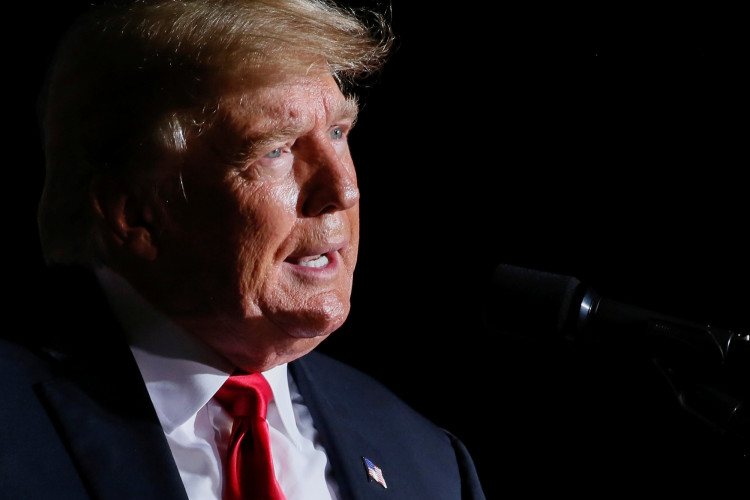As the debate over abortion rights intensifies across the United States, former President Donald Trump finds himself at the center of a political storm in his home state of Florida. The upcoming referendum on Florida's Amendment 4, which seeks to overturn the state's restrictive six-week abortion ban, has thrust Trump into a dilemma that could have significant implications for his 2024 presidential campaign.
In recent months, Trump has avoided taking a clear stance on the abortion issue, stating that it should be left to the states to decide. However, with the November vote on Amendment 4 approaching, the former president's silence on how he plans to vote is becoming increasingly conspicuous. The measure, which would restore access to abortion up to the point of viability and repeal other restrictions, has garnered widespread attention, particularly as Trump's political base in Florida looks to him for guidance.
The stakes for Trump are high. On one hand, opposing the amendment could bolster his standing with the socially conservative voters who have long been a critical part of his support base. On the other hand, endorsing the measure could alienate these same voters, many of whom have previously expressed disappointment with Trump's reluctance to champion stricter abortion laws. Steve Deace, a conservative radio host and influential figure among evangelical voters, recently warned that Trump needs to align himself more clearly with the anti-abortion cause to maintain the loyalty of his base.
"It would be a shame for us to lose this election because Trump didn't speak out against a no abortion restrictions legislation 80 percent of Americans don't agree with," Deace told POLITICO, underscoring the tightrope Trump must walk.
Meanwhile, Democrats have seized on Trump's ambiguity to portray him as out of touch with both sides of the issue. Vice President Kamala Harris has been particularly vocal, criticizing Trump for his role in the Supreme Court's decision to overturn Roe v. Wade and using his silence on the Florida amendment to rally support among pro-choice voters. The upcoming Democratic National Convention in Chicago is expected to highlight Trump's record on abortion, framing it as a key issue in the 2024 election.
Florida's Amendment 4 is poised to be a pivotal issue in the state, which has historically been a battleground in national elections. Recent polls suggest that the measure has strong support, with 69 percent of likely voters indicating they plan to vote in favor of the amendment, according to a July survey by the University of North Florida's Public Opinion Research Lab. However, the initiative needs 60 percent support to pass, and with the race too close to call, every vote counts.
This referendum has also highlighted the complexities of voter attitudes on abortion. Despite Trump's significant influence among Florida Republicans, a substantial number of his supporters appear to favor abortion rights. The USA TODAY/Suffolk University/WSVN-TV poll revealed that 35 percent of Trump voters back Amendment 4, reflecting a nuanced electorate that may not strictly adhere to party lines on this issue.
David Paleologos, director of the Suffolk University Political Research Center, noted the importance of this trend. "They're not all one way or another way. They can be for Trump but they can also be for abortion rights," he said, pointing to the complexities Trump faces as he navigates this issue.
The challenge for Trump is further compounded by Florida's diverse electorate. The state's women, in particular, have emerged as a driving force behind the support for Amendment 4, with 64 percent of female voters backing the measure, compared to 51 percent of men, according to the USA TODAY poll. This gender gap underscores the growing importance of female voters in the abortion debate, especially in a state where reproductive rights have become a flashpoint.
Adding to the uncertainty is the impact of this issue on Trump's overall political strategy. While Trump has managed to avoid significant backlash from conservative voters by focusing on state-level solutions, his continued silence on Florida's referendum could become a liability. Anti-abortion leaders have expressed hope that Trump will remain quiet on the issue, fearing that his opposition to the amendment could galvanize support for it. However, others argue that Trump's influence could be decisive in swaying the outcome, particularly in a state where his endorsement carries considerable weight.






